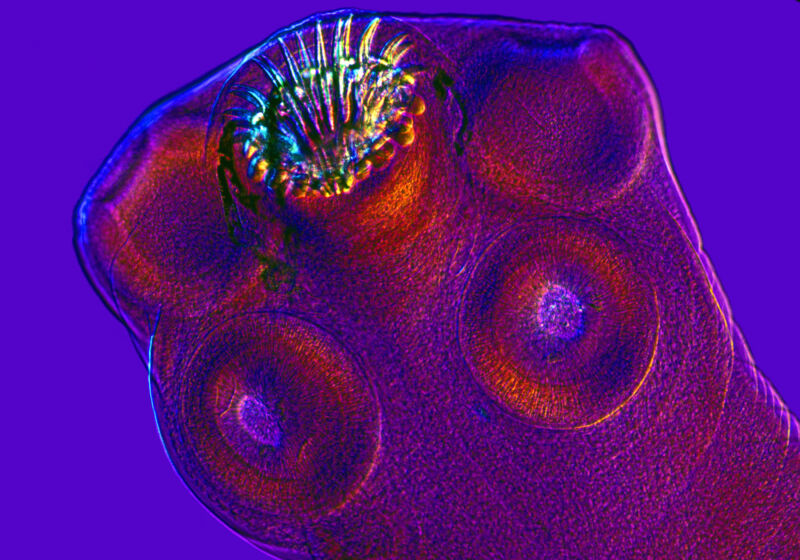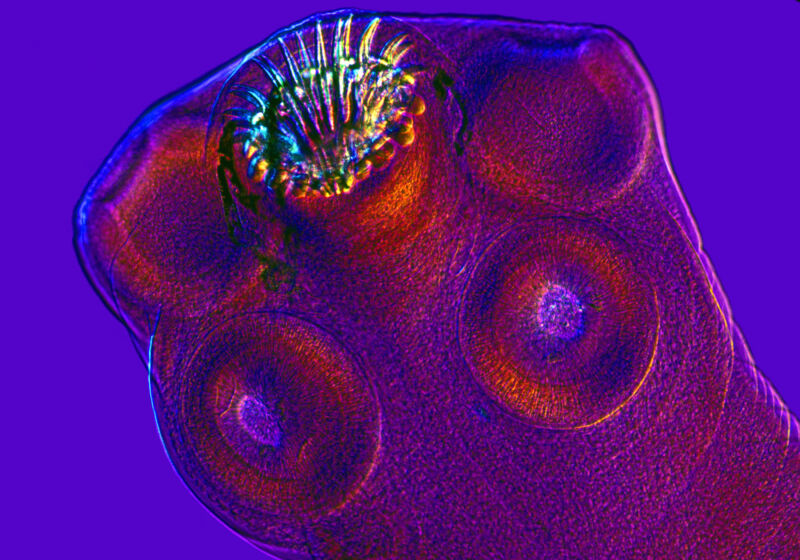
Enlarge / Head of pork tapeworm. (credit: Getty | Michael J Klein)
On a night that seemed like any other, a perfectly healthy 38-year-old man in Massachusetts fell from his bed amid a violent seizure at 4 am. The commotion woke his wife, who found her husband on the floor, shaking and “speaking gibberish.” He was rushed to Massachusetts General Hospital.
There, doctors witnessed the man have a two-minute-long tonic-clonic (grand mal) seizure, in which he lost consciousness and his muscles aggressively contracted. Doctors began the painstaking process of trying to piece together what was wrong by performing a battery of tests and interviewing his family.
By nearly every account, the man was in very good health. He had no history of seizures or of any cardiovascular, respiratory, gastrointestinal, genitourinary, or neurologic disorders. His toxicology screens were clear. He took no medications, prescribed or over-the-counter. He didn’t smoke and rarely drank. There was no evidence that anything had happened to him recently that would provoke a seizure; the man had spent the previous day with his children, then he had dinner with his brother, who reported nothing out of the ordinary. The only initial hint of the diagnosis to come was that the man had immigrated to Boston from a rural area of Guatemala about 20 years earlier.





